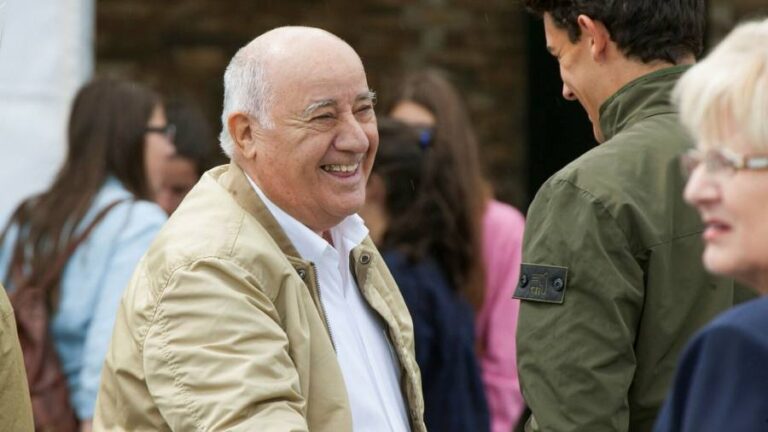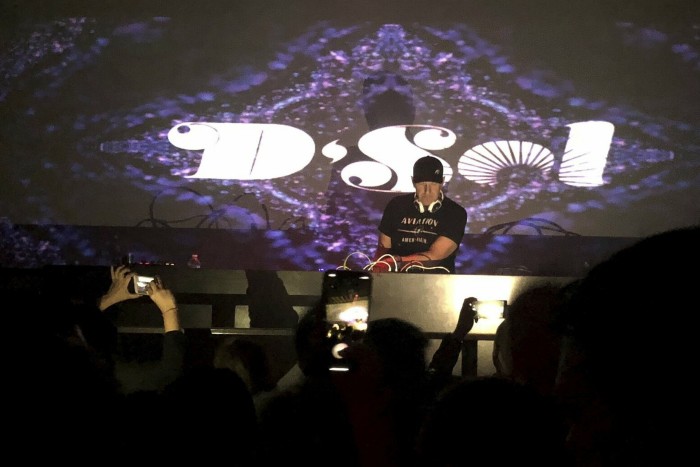
For years, I have been as addicted to the antics of Tesla’s CEO as any Muskite. But perhaps I’m developing Long Elon or Musk Fatigue. The relentless train of high-publicity hi-jinks is starting to wear. It even has me wondering — why do it at all? It must be exhausting. Why not just run a company without picking fights with cave rescuers, a public spat with Twitter or shooting cars into space?
If you look down the top 50 of the Forbes rich list, one thing becomes clear. Many, unsurprisingly, are household names. But many are not. And of the household names, not all are A-list CEO-lebrities.
So why do some wealthy businesspeople hog the limelight while others just get on with the job? What separates people like Musk, Jeff Bezos and Larry Ellison from the wealthy individuals you’ve never heard of? What makes Goldman Sachs chief David Solomon, a man who earns tens of millions of dollars, want to DJ at Lollapalooza alongside King Princess and The Regrettes?
Back in 2000, the leadership expert and anthropologist Michael Maccoby wrote a prescient article in the Harvard Business Review on “larger-than-life” business leaders. He noted that, from the 1950s to the 1980s, executives were staid company men in suits. Self-promotion, star power and, yes, narcissism were not prerequisites.

However, he went on to say that business, especially tech companies, now plays a significant role in people’s lives and is driving societal change. This has brought different, more publicity-seeking leaders to the fore. Maccoby was keen to stress that narcissistic CEOs aren’t all bad — they’re good at inspiring people and bringing them along on a narrative. There can be downsides — their dreams can outstrip reality, they struggle with criticism and can be very destructive.
Even so, the courting of fame is far from universal. Think of people like Zara’s founder, Amancio Ortega, who has given only a handful of interviews in his life. For many years, most people didn’t even know what he looked like because no photos had been released. Similarly, Philip Anschutz, the Denver-based businessman, is involved in a number of high-profile industries but is believed to have held two press conferences in his life.
We might think of traits such as extroversion and narcissism as part of the CEO package. But Tomas Chamorro-Premuzic, professor of business psychology at University College London, says the presence of such attributes varies among senior managers, as it does among the rest of the population. For every Musk, there’s an Anschutz. For every Richard Branson, an Angela Bennett.
He adds that social media and the modern cult of Silicon Valley plays a part, too. “For CEOs and even ordinary people, it’s a lot easier to cultivate a public persona like you’re Elvis Presley or Kim Kardashian. The means are there,” he says.
But why? A friend who works in TV used to say that rich people often took part in reality shows, despite the obvious downsides, “because it gives them something they don’t have: fame”. There’s definitely some truth to this — the idea that a degree of fame is as much a part of the “success package” as a chalet in Zermatt or a Gulfstream Jet.
Even so, it’s worth asking whether fame adds anything (or takes anything away). After all, everyone likes to be recognised for their work. But with celebrity businesspeople, the recognition comes from those who are not stakeholders — and so you end up playing to the gallery. A friend who works in publishing always jokes that one day, his industry will recognise that the link between followers on Twitter and Instagram and book sales is by no means a straightforward one — “but that day is never today”.
Moreover, social media has turbocharged the cult of CEO-lebrity, but didn’t give rise to it. Branson and Jack Welch were both personalities before email, while the journalist Mark Wilson published his book The Difference Between God and Larry Ellison: God Doesn’t Think He’s Larry Ellison in 2003, a year before Facebook was founded. In the 19th century, when heavy industry was driving change, Carnegie and Rockefeller were household names.
Perhaps, then, it is as simple as being a personal preference. While many wealthy people choose the spotlight, others wield their influence behind the scenes. People like Charles Koch and Peter Thiel are movers and shakers, but rarely indulge in grandstanding. For every Musk, you can find somebody who is almost completely unknown, but still pulls plenty of strings. They don’t want fame — they want power.
There are also those like Bill Gates and Warren Buffett whose fame is of a more measured type — and also people like Bezos who have moved from behind the scenes into the limelight. Chamorro-Premuzic says: “I think the healthy balance is probably a bit of both. You give some interviews and share some aspects of your life that are important. But you don’t become an unfiltered Twitter addict.”
That said, it’s hard not to love one of the few quotes popularly attributed to Ortega, who is reported to have said, “In the street, I only want to be recognized by my family, my friends and people I work with.”
Rhymer is reading . . .
Appliance by JO Morgan. The author is better known as a poet and this is an unusual, almost episodic novel. The 11 chapters have different characters and are linked by a machine. The overall theme, such as it is, is the coming of age of a new technology and what it does to humanity.
Follow Rhymer on Twitter @rhymerrigby
This article is part of FT Wealth, a section providing in-depth coverage of philanthropy, entrepreneurs, family offices, as well as alternative and impact investment